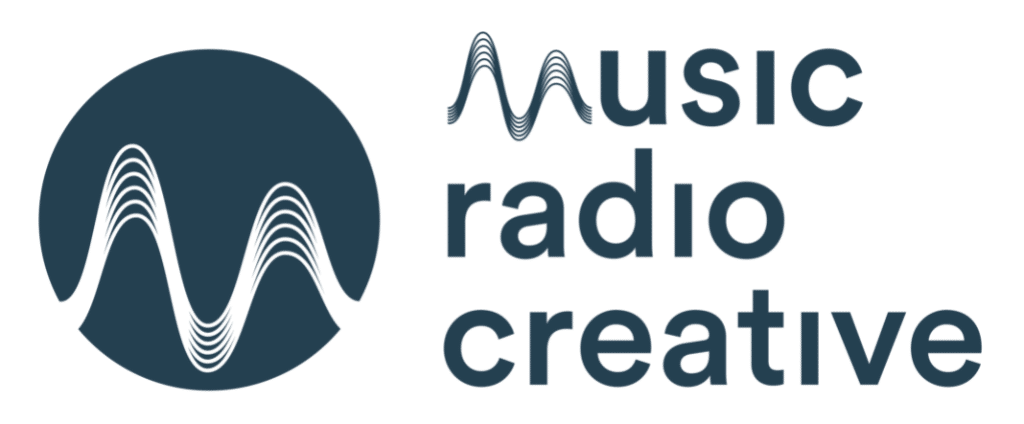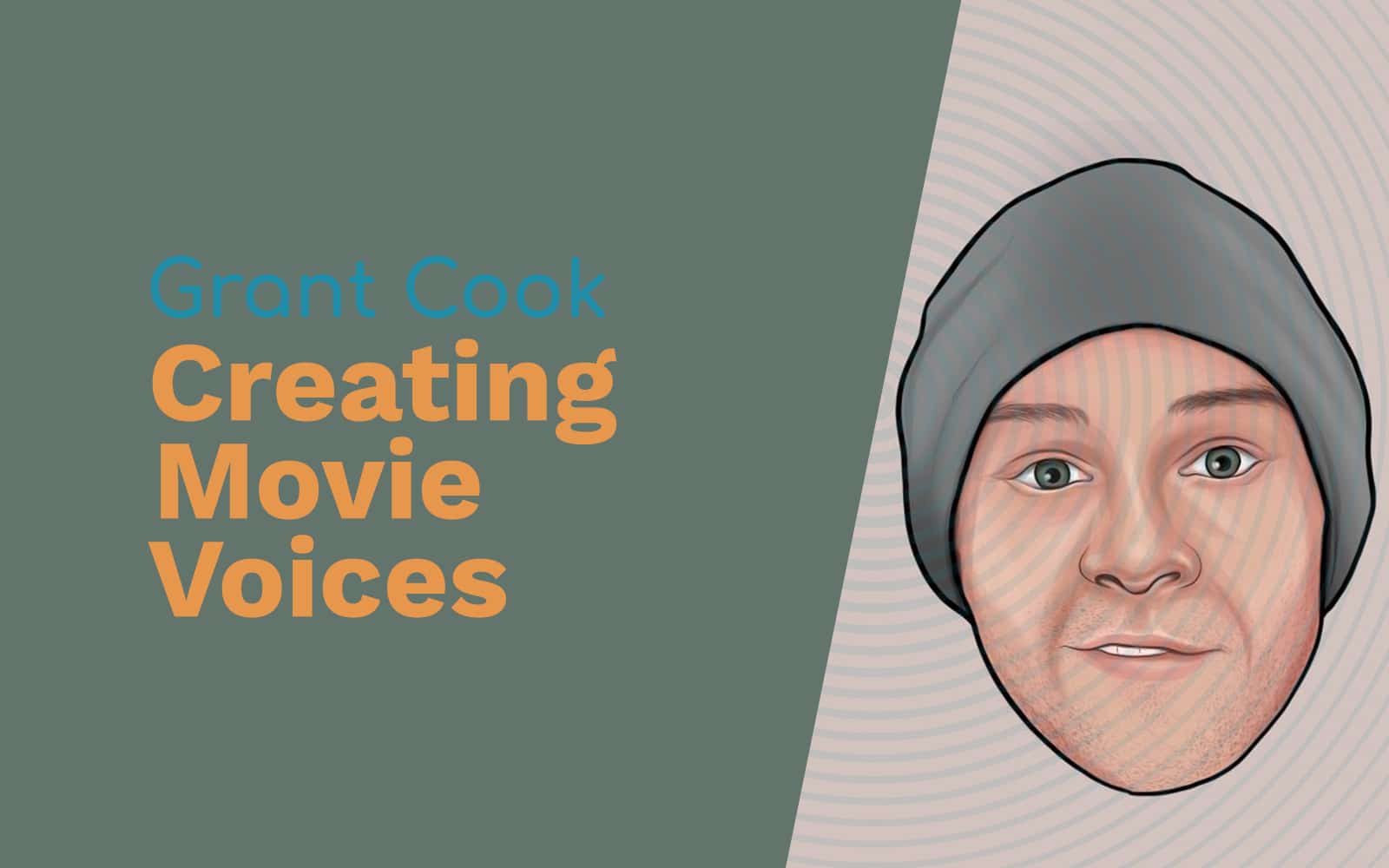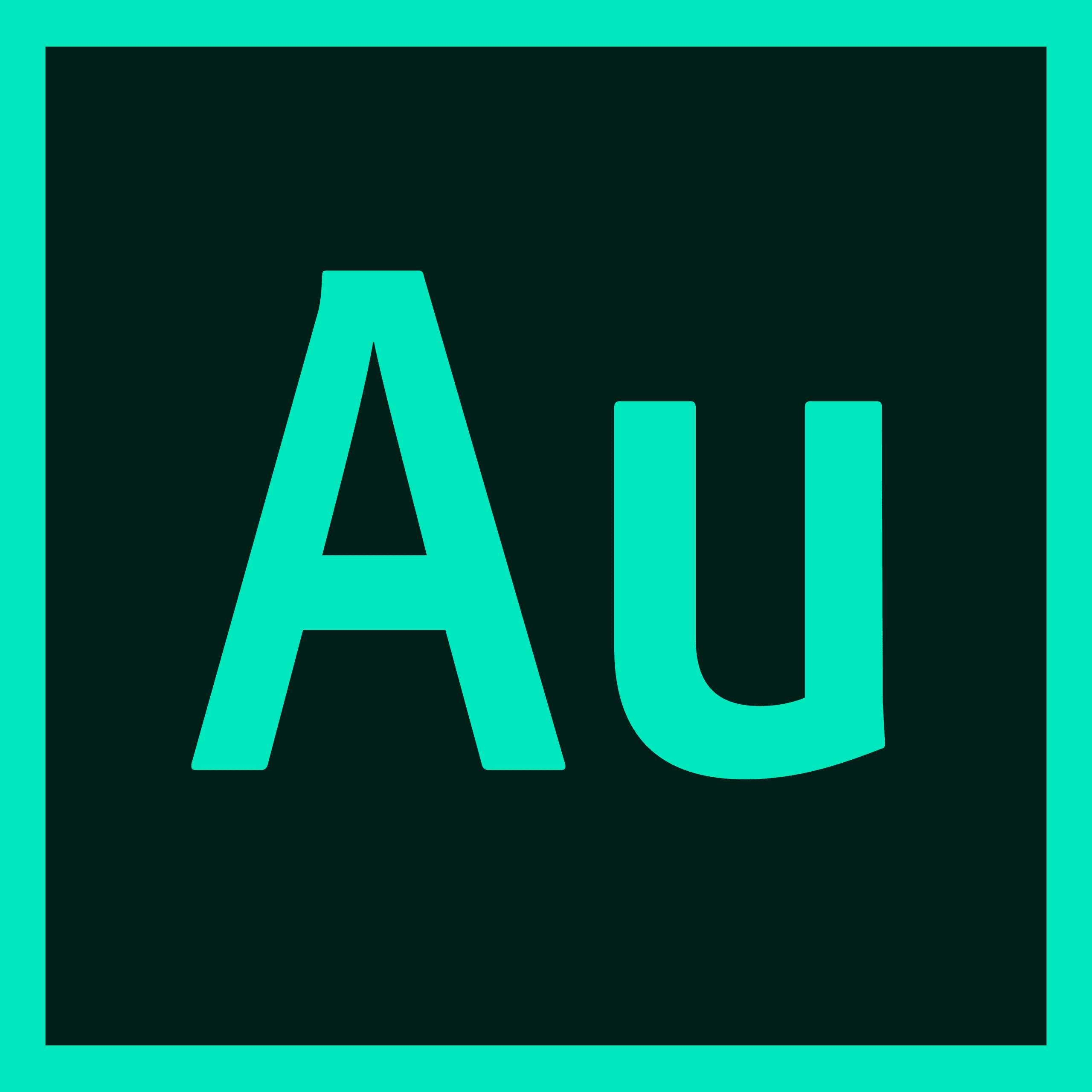Adobe Audition Podcast – Grant Cook (transcribed by Sonix)
Mike Russell: Hi, I'm Mike Russell from Music Radio Creative. Welcome to the Adobe Audition Podcast were I'm interviewing power users of Adobe Audition. We'll reminisce back to Cool Edit Pro and take you right up to date with Adobe Audition CC. If you'd like to learn about audio production – everything from vocal effects to radio imaging, commercial production to music mixing – join my next audio production course at mrc dot fm slash learn. That's mrc dot fm slash l e a r n, learn.
Mike Russell: My guest on this show is Grant Cook. He is the host of film learnin which is a youtube channel and show all about recreating visual and voice effects from movies and TV shows in a fun atmosphere where you can learn loads not only about recreating voices obviously using Adobe Audition but also using some of the other apps in the creative cloud like Premiere Pro an After Effects Grant Cook is an old ram multitalented multimedia creator and I'm delighted to have you on the show grot. Welcome.
Grant Cook: Thank you very much for having me.
Mike Russell: So let's get stuck into the main premise of this podcast How are you using Adobe Audition growns.
Grant Cook: Well believe it or not I've actually been using a W.O. edition since it was called Cool Edit for way back in 0. God knows when I'm showing my age a little bit there but mostly for processing my short film already creating some sound effects mixing them all together and also mixing my terrible past my terrible parody songs that I used to make way back when in the day
Mike Russell: Nice. So it's very much been a complimentary program to your film and video editing and I take it by watching some of the videos that you create specifically about Adobe Audition for film learning. You're quite a fan of playing with the effects that manipulate the voice. Would I be correct in saying that
Grant Cook: Absolutely. I love the effects rack. I love doing just about anything I can to create these voices from video and TV and while I'm an okay voice actor at the audition really gives me that push to actually get these voices to sound maybe just a little bit like these you know effects from video and TV that I'm trying to replicate.
Mike Russell: Absolutely for sure. So later on in the show I'm really excited I'll do a deep dive with you and will find some of your favorite effects some workflows. But let's talk broadly about Gronk cook and you'll background and in particular may be some audio advice you've received over the years. Let's start with that and find out some of the best audio advice you think you've received in your lifetime of producing movies and voice effects and visual effects. What's the best audio advice you've got.
Grant Cook: I think the best advice I was ever given was don't be cheap when it comes to your microphone and an audience software. Because bad audio is instantly noticeable and you can get creative with your video Picha but when you have bad audio it's there to stay. We've all done a lot of noise reduction software processing and wallets are okay and it works quite well in some circumstances. When you've got that really bad audio with the winds whipping boy you scurred
Mike Russell: Could not agree more with that statement. Get the quality of audio as good as you can at the start. And again I wanna talk with you later on. So getting the right microphone you have already mentioned that I'm excited to find out later what kind of audio equipment you're using in your particular setup to create good quality audio. But let's look at some of the projects you've worked on the. So for instance I'm sure you've got lots that you're looking forward to but over the years of the projects you've been working on and by the way is his film lean and is that your full time gig or do you do other bits related to this whole world.
Grant Cook: Well I did have a full time job teaching and learning environment. So I ran an entire e-learning system for a major hospital but I've just departed from that and at the moment I am full time on Philon and
Mike Russell: Brillion OK so let's talk about challenging projects now. They could be challenging projects related to film learning or a particular audio or voice effect you were trying to create or maybe some other line of work that you were working in before. What would you say Graunt is the most challenging project you've worked.
Grant Cook: Well when I was working at the public hospital we did a lot of promo videos and introductions with people that weren't familiar with on camera work. And we did have this one person who she had this weird habit of sniffing incessantly throughout the entire ordeal process. We must have shot a five minute video and for five minutes she did this sniff like that forty six times. And I had to somehow cut in between the sniffs and will edit that out. So it actually flood naturally. And that was easily one of the hardest things I've ever done to make that actually look coherent.
Mike Russell: Wow that's amazing so yeah you're absolutely right in the fact that get your audio quality is because you can but you can have the best microphone possible yet someone's got a cold or they've got either Eva or they keep coughing or something and then as an Oreo to you definitely have another challenge on your hands. So that's so true. So it's really cool to hear at the moment you are full time with film learning. I've seen a lot of videos recently including obviously it always peaks my interest when I see the Adobe Audition logo and I see you working on creating some cool voice effects from one of the movies or all cartoons or anything like that. I think it's fantastically fantastically creative way to use the software that has so many great effects baked in. So let's talk now about cool projects some where you going. What is the one cool thing you'd really like to work on in the future maybe something you haven't even told anyone about yet.
Grant Cook: Honestly I would love to produce my own music. It's something I have a love hate relationship with. As far as I love music but I'll ask any discernible talent to actually make music so my music endeavours have mostly been parody songs because I can just go and download a karaoke version of that and just plucked my lyrics in as far as creating music and beats itself. I'm absolutely useless but I'd love to learn
Mike Russell: So yeah that's really interesting that you're interested to work on more musical projects. So how would you go about that in an editing editing sense obviously Adobe Audition can do a lot but really it kind to face with video or do anything musically like that. So what would you look to do if you wanted to introduce music into your entire audio repertoire.
Grant Cook: Well I have worked so basically with garage band from time to time but I think that's what must be where I start. But I think I might just be maybe looking at some of your tutorials and then have a jump up for from last
Mike Russell: So that's cool. Excellent. So we we've spoken about challenging projects editing sniffles or anything or within audience and cool projects musical projects you'd like to work on in the future. Let's go back now to your childhood because most of our associations with all the good associations that get us into this field. I know you're a very visual guy and you're always inside premie approach and after effects and stuff like that but you definitely have a passion for audio and I can see the passion shining through when you do those tutorials in audition on film learning. So where did it all start for you. What was that childhood memory about audio that made you smile and think this is something I want to know more about.
Grant Cook: Well I'm on it to take you back to 1999. There I'm a non day I probably got the best birthday present I've ever gotten and that was an Akai Juul tape deck with a copy of rock sets look sharp and yeah I had that and I had a tape of Poison's open up and say and there were two albums that uniquely shaped my childhood and I've just always loved music ever since then
Mike Russell: Excellent. That's fantastic. So yeah always right there from single figures. You were into audio. You were into the music of the time of the late 80s and just generally having fun with the gear of the time which of course were cassette tapes and yeah I was funny when you used to record stuff on cassette tapes and sometimes it would go wobbly and you know you know all that kind of stuff that now is being reintroduced into software like Adobe Audition with the page band in the. Those kind of plug ins
Grant Cook: Absolutely crazy. I was looking into that the other day trying to get something that sounded retro and 80s just exploring some of the isotope plug ins for dub audition and I just couldn't get anything disbanded. Just the same
Mike Russell: That's it. He is authentic. That is the whole debate I guess between. Can you do everything in a digital environment or do you still need analog gear. And actually I'd love to ask you about that question. Well actually I'd like to ask you for the answer from you to that question but also then I guess later on when I ask you about your studio equipment we'll get an idea of how much animal you've got but how important do you think analogue processing is in this age of doing everything in post
Grant Cook: As far as my digital stuff goes I know people always get a kick out of when I do retro titles or when I do. VHS filters or old style film filters from my or my fix. So people are always looking for that sort of thing. And even when you look back to last year one of the biggest videos that blew up there was Kung Fury which was a massive 80s throwback. And I think that even had David Hasselhoff singing on the soundtrack. So people are always looking to eat up nostalgia. So being able to dive into analog processing and so I think it's there's still a market for today
Mike Russell: Yahi right and trying to think why that is and I guess you've coined it there with the word nostalgia. You know people are nostalgic people want to relive their past relive those years that bought them so many happy memories. And like you say with film and video editing you know you got VHS filters and things like that so popular today and you're getting you know tons of views or those videos are rising to the top as some of the best that you've created. It's very interesting and it reminds me of creating a story about how to create the vintage voice effect again that's one of my most popular ones. It's funny how we just want to create the effects of the past right today. That's pretty and so you know this software inside and out. Let's get started then. And I know this is often a tough question to answer because there are so many good features inside edition but if you had to pick just one favorite feature what would it be and why.
Grant Cook: I've got to say the effects right just the eye to the ability to be able to layer effects on your audio with that sort of damaging or modifying the original track. I just think that's the best thing ever it's like using adjustment lazing premie approach or aftereffects your original idea is still intact until you hit that apply button. You can do pretty much whatever you want without busting anything. I love that it gives you the ability to just experiment as much as you'd like without really screwing anything up.
Mike Russell: Yeah you bet. Glasgow I think you can get a maximum of 16 effects inside the effects rack and not you say you can like Plum one in one ounce you can switch the power but not enough so you can hear what it sounds like with and without tweet them as much as you like. And yeah absolutely key that is nondestructive. So what you're doing is not altering the way you form it's no real writing a new piece of audio you're simply experimenting you don't like it you can just delete everything starts again but then obviously if you were in the waveform view hit apply and it's on. So I'm going to narrow you down further if you had to pick one effect from the effects menu that you would apply inside the effects rack which one would that be back to the interview in a moment. But if you want to in my perfect audio create a set of head over to a dot fm slash when
Grant Cook: If I had to choose it'd probably be the pitch bend. I know I jumped to that a lot and or. Well that's a tough one because I do love boosting the bass with the 50 filter as well but yeah I have to go with the Pitchblend because it's my go to thing when most of the voices that I do deep gravelly gruff voices. It's the first thing I always go to
Mike Russell: Can you give any examples of any any voices you've tried to recreate what kind of process do you go through when you think about making a tutorial way like you say you going to recreate the voice of Batman or something like that. What goes through your mind or do you instantly get the effects that you might need to use in your head or do you sort of have to sit there and have a play and figure out how does it usually work.
Grant Cook: Well the first thing I want to do is nail that bass impression that's key to pretty much any audio voice refit effect you want to do. You've got now that bass impression. So for example the last episode I did was from the Behnam trailer the venom voice and got Eddie Brooks head which was a really low deep rumble and I had the inclination that Tom Hardy had actually done that voice because. Tom Hardy he's an acting phenomenon so I figured that if Tom Hardy can do that voice with his sort of Hiersche pitch voice should be out to do this and then I'll find a way that they've persisted in say audition or something along those lines. So I just jump in there and just say OK well it's definitely been with the pitch just a little bit and then on top of that they've really really upped the base in that so you can really hear that bass in it. And so I thought I might be ologist put one layer of bass on and then layer another a lot of bass on top of that and we'll just see how that goes. And essentially that's based that's essentially what I did. So I think I only had maybe three or four different layers in the effects rack and it was I think it might have just been lowering the pitch slightly than it was two layers of the 50 50 filter which by the way I learned how to use that watching your tutorials and I think the last thing I'm I've done is just add a little bit of reverb to that just so it had a bit of room ambience and it was yeah like I said it was just a matter of just experimenting until and listening to that Trella voice constantly until I got the exact sort of approximation. I always say at the end of my tutorials that was my take on that because you're never going to get it 100 percent. So it's it's pretty much an easy out for me I just say Well that was my take on the
Mike Russell: Yeah no totally Yeah I think that's a really good closing line. Because I mean you either the comments have got better and they're sort of better filtered. I've noticed recently but back in the day you used to be quite vicious really with some of the comments but they really didn't nail it if you didn't get it right. Like for instance I did a video once on recreating the Dalek voice from you and looking back now yeah it's quite embarrassing actually. People slated me for it so have you ever had a similar experience where they all do you kind of cover yourself I say well that's how I did it. But there are other
Grant Cook: Yeah
Mike Russell: Ways
Grant Cook: I always say that that's my take but every now and then you do get someone that just says that was really really bad and it might have been one instance where I did Keiler and voice effect and it was based on his voice from the very first taste trailer for The Force Awakens which saddened nothing like the it sound like in the movie. So I did get crucified just a little bit on that let's say or since we're like Darth Vader which as far as youtube comments that's that's pretty vanilla
Mike Russell: Yeah. And you never know you never get to please all the people all the time. If they're able to remain anonymous. What I always find fascinating is the the likes and dislikes as well on the YouTube videos would be rather interesting to know who are the people clicking the dislike button. If you would reveal that data that would be quite interesting because there's always some people but there you go you and the. How do you find YouTube as a platform to do your tutorials. I'm quite curious from a YouTube to another huge Uber. Tell us your experience and maybe some of your tips as well being on YouTube.
Grant Cook: Well as far as my experience on it's pretty been oh it's pronounced been overwhelmingly positive. We've been able to sort of grow. I counted rapidly but we've been growing consistently over the last four and a half years that I've been doing film Lenin and as far as a platform goes it's like it's hard to break into. But once you get that one single video that actually gets some views it's just a matter of constantly grading herself into the ground to maintain momentum. That's what I've found at least because I think I got my first decently viewed video might have been three years ago and I've been putting in a weekly tutorial every single week since then. It's now been over 200 tutorials and I'm well I'm tired walk
Mike Russell: It does get tiring crazy week in week out for sure. I mean it's a lot of work particularly when you really set the bar high for production standards. I know you do. You're not just doing a screen recording. You know here's how you do it kind of thing. You actually have from what I understand an intro and try which I'm assuming you do film on some Solaro mirrorless camera right.
Grant Cook: Yes indeed.
Mike Russell: Cool. So what I really want to get into audio gear but less you're such a great video creator. Let's talk about what are you using to create those YouTube videos. How. What's your process if you got like a nice camera what kind of camera you got and how are you doing the screenplay stuff for screen recording.
Grant Cook: I run a Peniston Hej for and for the screen capture. I run Adobe captivate 6 so it's a pretty old version of Adobe captivate but it still does the job. So I've had that for I think 6 years now and it records in full HD and it's nice and crisp so I'm not going to move from that anytime soon. Generally I just render it out from captivate and then bring it into premie a because there isn't a real good workflow from bringing that from captivate is captivate isn't. It's not really great on audio processing either. So essentially what I'll do is I'll record my complete script in an audition. Bring that into a pro start up captivate and I'll listen to my tutorial as I'm recording in captivate so at any given time I have premie approach after effects A.W. addition and capped by running at the same time while I'm recording. So the easiest way for me to experiment on how my tutorial works and if it works is by doing it so every time I'll do an episode of Filmon I'll be listening to myself telling myself what to do while I'm doing this silkscreened recording process. So basically that's my workflow for recording the screen during the tutorial I'll just listen to myself telling myself what to do while I'm doing it.
Mike Russell: So yeah a couple more questions. First of all obviously have us a little bit about your video and Yuchi workflow there. But yeah definitely keen to learn about your audio resources and gear. What is there in Grant studio setup in particular. I'm interested in microphones maybe mixing board you've got anything that you use and you might change to create your nice sounding audio. What would you recommend.
Grant Cook: Well firstly my narration Mark front is a road NTUC space. What I used to actually record of my and my camera is a road video. MARK PRYOR This is going to get very very familiar. Also I've got any sort of levelly work. I've got the record make a bundles. Sticking with the word. I've also got a shotgun mark which is I wrote in too. I did have an audio technica a USP Mark but I just couldn't go past the right into space because it just looks so damn pretty.
Mike Russell: So any other gear or equipment resources that you'd recommend.
Grant Cook: As far as resources I'd say look if we're talking something like my music library I use filmstar on every single episode of Filmon and that's really my bread and butter as far as my music goes. I love the ability of the change say the tempo and the depth and the power of music in real time like you're actually scoring. It's just it's a massive help for me especially. I'm always on the clock so an Moezzi as far as Santa effects go I really does have a massive hard drive that up in collecting audio packs for about 15 years so I can even tell you what's in that. I know there's a lot of rips and effects from old Star Wars games and stuff but that's just between human
Mike Russell: Well and I'm just talking about filmstar recommendation you made. Wow you've actually like you mentioned you've got Dial's like momentum depth and power that you can move from rage track to change. I guess the sound the pace the emotion that's that super cool
Grant Cook: Yeah I've been working with them. Probably a little bit over a year now and I've just I fell in love with that software the moment I sort.
Mike Russell: All right. So what we've learned a lot from Ukraine not only your your background and what you're up to your full time invested into your YouTube channel film learn and at the moment we've also learnt about your workflows techniques favorite things to do inside Adobe Audition which is celebrating his 25th birthday this year the year this podcast is released and I'm curious as as a wrap up now that young aspiring person that's listening maybe they want to get in to the industry in order to produce. Well let's face it in this new world we're in now. Maybe they just want to be an online creation and that involves doing pretty much everything the graphics in photoshop the audio an audition video in after effects and Premiere Pro. So they're young they're aspiring they're keen to get started. What advice would you have for that person listening now
Grant Cook: Easiest thing to say is jump online and absorb every tutorial you can. When I started that we didn't have online tutorials but now we have an absolute butt load of stuff that you can pretty much learn any kind of software. The possibilities are endless. I mean if you type in Adobe Audition tutorials online you've probably got about a million results and anything you can think of. You can probably find so jump online and just go absolutely nuts and you inevitably you never really know what you're going to discover just by poking around.
Mike Russell: Exactly. B be curious and be looking like you say we do have a great resource online now that you just can hope to. You don't no longer have to ask someone else who knows someone else to find has some things done. Like you say most of the time you just have to look for a type in a search and find it. Fantastic advice to the next generation of creators and it's been great to have you on the show grumped the anyone who's listening right now who would like to check you out online. Where would be the place you'd point them to.
Grant Cook: You can find me on youtube by searching film Lennan or Lenarcic films or pretty much any kind of flash effect. I will come up where you can head to my Web site Filmon and dot com or you can hit me up on Twitter at low not your films and I'm reachable on everything. If you come into my video I am going to ANC AVAC
Mike Russell: That's excellent. Lovatt Gronk thank you so much for joining me on the show.
Grant Cook: Now. Thanks very much Mark it's been a pleasure to be here.
Mike Russell: That concludes this episode would you like an extra chance to win the awesome audio gear giveaway. Subscribe and review this podcast. Then he tells the podcast that MRC Dotts FM for an extra entry into the awesome audio gear giveaway. Good luck.
Sonix is the best audio transcription software in 2018.
The above audio transcript of “Adobe Audition Podcast – Grant Cook” was transcribed by the best audio transcription service called Sonix. If you have to convert audio to text in 2018, then you should try Sonix. Transcribing audio files is painful. Sonix makes it fast, easy, and affordable. I love using Sonix to transcribe my audio files.










Really enjoyed the podcast 🙂
Thanks Cameron – glad to hear it! 🙂
Thanks for the fine podcast.
Thank you Ronald – glad you enjoyed 🙂